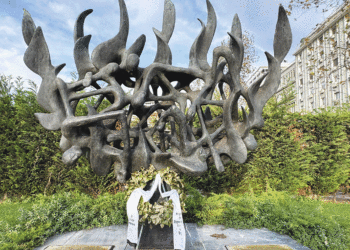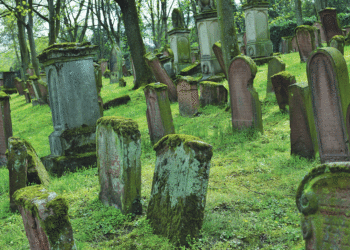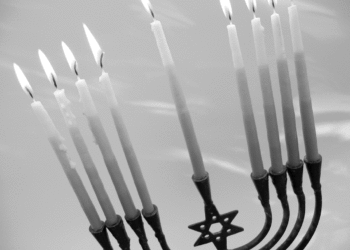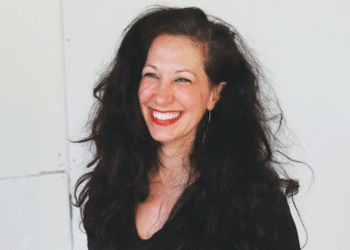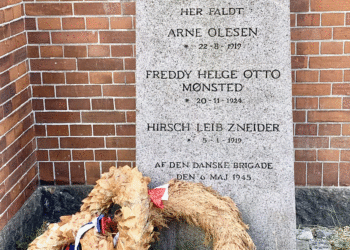Talia Sasson, president of the New Israel Fund, will discuss the ongoing struggle to support civil and human rights in Israel
By MORDECAI SPECKTOR
Item No. 1: Early in July, David Azoulay, a member of Knesset from the Shas Party and Israel’s Minister of Religious Services, declared on Army Radio: “The moment a Reform Jew stops following the religion of Israel, let’s say there’s a problem. I cannot allow myself to call such a person a Jew.”
When Reform Jews, in the United States and Israel, objected to his remarks, Azoulay dialed back his comment, saying that he would pray for all Jews “to return” to the faith.
Item No. 2: The Times of Israel reported this week that Tzipi Hotovely, Likud Party MK and Deputy Minister for Foreign Affairs, would meet with representatives of several European Union countries and urge them to end their governments’ funding of nongovernmental organizations (NGOs) that “work to blacken Israel’s name in the world.”
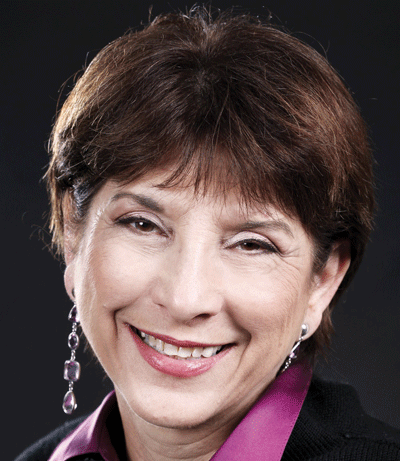
Previously, right-wing Israeli Knesset members have considered legislation to heavily tax foreign contributions to organizations monitoring civil and human rights in Israel and the Occupied Territories.
At the center of the controversy — which slops over into the American Jewish community — is the New Israel Fund (NIF), which funds a variety of groups dedicated to maintaining Israel’s democratic and pluralistic character. Talia Sasson, president of the New Israel Fund, will visit Minnesota next month and discuss some of the challenges facing her organization.
Sasson’s Aug. 9 talk at the Sabes JCC is titled “Restoring the Vision of a Liberal, Pluralistic Israel.” Sasson talked on the phone with the Jewish World last week from her home in Beit Zayit, just outside of Jerusalem.
The issue du jour was the Israeli government’s plan to demolish homes inhabited by destitute Palestinians in Susiya, in the South Hebron Hills. B’Tselem – The Israeli Information Center for Human Rights in the Occupied Territories, a group funded by NIF, has been campaigning on behalf of Susiya residents, whose homes have been under threat from bulldozers for several years.
“I don’t know if they are located there illegally,” said Sasson, regarding the situation of Susiya. “I think that if we’re talking about law, then the [Jewish] settlements are illegal in the West Bank. I don’t think this is appropriate, to remove those people from the place they lived for decades, and I oppose that definitely.”
Sasson, one of the most famous lawyers in Israel, knows about the nature of West Bank settlements. At the request of former Prime Minister Ariel Sharon, she served as a special legal advisor to the government and authored what is know as the Sasson Report on illegal outposts in the West Bank, in 2005.
The Sasson Report was endorsed by the Israeli Cabinet, and the High Court of Israel has ruled that certain West Bank outposts operate in violation of the law. However, these illegal Jewish outposts continue to exist through the collusion of various Israeli government agencies that provide water and electricity, educational funding and security through the Israel Defense Forces (IDF).
When Sasson last visited the Twin Cities, in 2012, she spoke at a New Israel Fund event at Beth El Synagogue. A veteran of the IDF and 25 years in the State Attorney’s office, Sasson talked then about how the continued Israeli occupation of the West Bank is having a corrosive effect on Israeli society. She sketched out the situation of 340,000 Jewish settlers living among 2.6 million Palestinians, who have “no political rights.”
Unfortunately, the Israeli military occupation of the West Bank, now in its 49th year, has become more entrenched, and the settlers have a strong presence in the new right-wing Israeli government led by Prime Minister Benjamin Netanyahu. The current government seeks to stifle those campaigning for civil rights, religious tolerance and an end to the occupation.
For her part, Sasson speaks up on behalf of groups funded by NIF: B’tselem; Shovrim Shtika (Breaking the Silence), a group of military veterans that recently published a controversial report featuring the testimonies of soldiers who served in the most recent Gaza War; the Association for Civil Rights in Israel, the Israeli version of the American Civil Liberties Union (11-21-14 AJW); and dozens of other grassroots groups supporting religious pluralism and tolerance, and respect for civil rights.
Sasson said that she hasn’t seen current Knesset legislation aimed at limiting financial support for the NGOs funded by NIF. She mentioned that there are other legislative proposals designed to curb the High Court’s ability to review Knesset legislation, and there is also the controversial nation-state bill, which critics contend would downgrade the status of Arab Israelis, who make up one-fifth of Israel’s population.
The Aug. 9 New Israel Fund event is being cosponsored by at least six shuls in the Twin Cities, which underscores American Jewish concerns about the status of liberal Jewish streams in Israel.
Sasson understands this apprehension.
“These are the values we believe in,” said Sasson, about NIF’s support for religious tolerance and it’s opposition to the religious hierarchy’s exclusion of women.
“Declarations that come from Israel are sometimes extremely bad — I don’t know how to call them, maybe frustrating. But we have to fight against that. Today [opponents of civil rights and religious freedom] are in power… but we are still a democracy and we have our voice. We’re not staying silent here.”
***
Talia Sasson, president of the New Israel Fund, will speak 12 p.m. Sunday, Aug. 9 at the Sabes JCC, 4330 Cedar Lake Rd. S., St. Louis Park. To make a reservation, go to: tinyurl.com/TaliaSasson.
(American Jewish World 7.31.15)










